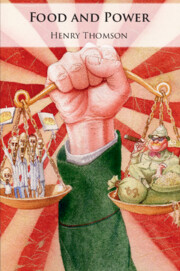Book contents
- Frontmatter
- Contents
- List of Figures
- List of Figures
- Acknowledgements
- 1 Introduction
- 2 Agricultural Policy, Regime Type, and Political Stability
- 3 Political Regime Type and Agricultural Policy Outcomes
- 4 Food Policy and Urban Unrest: A Global Analysis
- 5 Agricultural Rents, Landholding Inequality, and Authoritarian Regime Durability
- 6 Agricultural Policy and Authoritarian Regime Durability in Germany, 1878-1890
- 7 Agricultural Policy and Authoritarian Regime Durability in Malaysia, 1969-1980
- 8 Conclusion
- Bibliography
- Index
5 - Agricultural Rents, Landholding Inequality, and Authoritarian Regime Durability
Published online by Cambridge University Press: 31 May 2019
- Frontmatter
- Contents
- List of Figures
- List of Figures
- Acknowledgements
- 1 Introduction
- 2 Agricultural Policy, Regime Type, and Political Stability
- 3 Political Regime Type and Agricultural Policy Outcomes
- 4 Food Policy and Urban Unrest: A Global Analysis
- 5 Agricultural Rents, Landholding Inequality, and Authoritarian Regime Durability
- 6 Agricultural Policy and Authoritarian Regime Durability in Germany, 1878-1890
- 7 Agricultural Policy and Authoritarian Regime Durability in Malaysia, 1969-1980
- 8 Conclusion
- Bibliography
- Index
Summary
In this chaper, I examine the relationship between landholding inequality, interventions in agricultural markets, and the stability of authoritarian regimes. I construct measures of the size of rents that are generated by agricultural market distortions. I show that both forms of agricultural rents are much smaller than those originating from oil revenues. I then go on to estimate a series of models of authoritarian regime durability. I test whether landed elites are threatening to authoritarian regimes, and concentrations of landholdings are associated with a greater risk of regime collapse. I find a weak positive relationship between landholding inequality and the likelihood of collapse. I look at the relationship between agricultural rents and regime durability. I find that rents that accrue to the state have no effect on the probability of regime collapse. Rents accruing to agricultural producers, however, do have a significant interactive effect on regime stability. Where landholding inequality is high, regimes that distribute greater rents to the agricultural sector are significantly less likely to break down.
Keywords
- Type
- Chapter
- Information
- Food and PowerRegime Type, Agricultural Policy, and Political Stability, pp. 116 - 146Publisher: Cambridge University PressPrint publication year: 2019

